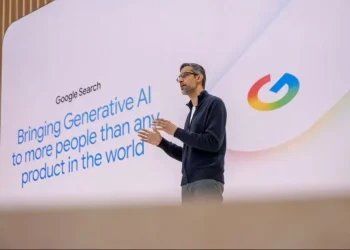More than 75% of developers and IT professionals rely on artificial intelligence (AI) for at least one daily professional responsibility, but 39% say they don’t trust AI-generated code, according to Google’s 2024 State of DevOps report.
Google Cloud’s DevOps Research and Assessment (DORA) team surveyed nearly 3,000 technology professionals globally and AI adoption is increasing rapidly within technology shops.
Also: 5 tips for choosing the right AI model for your business
Over three-quarters (76%) of respondents said they rely on AI for tasks like code writing, summarizing information, and code explanation. At least 81% said their companies have shifted technology resources into developing AI.
AI adoption was positively correlated with increased flow, productivity, job satisfaction, code quality, and internal documentation quality. At least 67% reported that AI is helping them improve their code.
Also: Asana launches a no-code tool for designing AI agents – aka your new ‘teammates’
So far, so good. Overall, a 25% increase in AI adoption in development shops is associated with the following metrics:
- 7.5% increase in documentation quality
- 3.4% increase in code quality
- 3.1% increase in code review speed
- 1.3% increase in approval speed
- 1.8% decrease in code complexity
However, the researchers noted AI adoption is also associated with a decrease in delivery stability: “AI adoption may negatively impact software delivery performance,” according to Nathen Harvey and Derek DeBellis, both with DORA.
Also: Technologist Bruce Schneier on security, society and why we need ‘public AI’ models
Close to four in ten professionals (39%) reported having “little or no trust” in AI. “This unexpected low level of trust indicates to us that there is a need to manage AI integration more thoughtfully,” the researchers said. “Teams must carefully evaluate AI’s role in their development workflow to mitigate the downsides.”
The survey revealed AI adoption was accompanied by an estimated decrease in delivery throughput of 1.5% and an estimated reduction in delivery stability of 7.2%.
“Our data suggest that improving the development process does not automatically improve software delivery — at least not without proper adherence to the basics of successful software delivery, like small batch sizes and robust testing mechanisms,” the researchers said.
Also: Gartner’s 2025 tech trends show how your business needs to adapt – and fast
“AI has positive impacts on many important individual and organizational factors which foster the conditions for high software delivery performance. But, AI does not appear to be a panacea.”
These results led the research authors to suggest a potential need for change management practices in the age of AI-powered development. They urged companies to adopt the following measures:
- “Enable your employees and reduce toil by orienting your AI adoption strategies towards empowering employees and alleviating the burden of undesirable tasks.”
- “Establish clear guidelines for the use of AI and address procedural concerns and foster open communication about its impact.”
- “Encourage continuous exploration of AI tools and provide them dedicated time for experimentation, and promote trust through hands-on experience.”
The survey also documents the benefits of a platform-engineering approach to development and operations. As many as 89% of respondents said they use an internal developer platform, reporting an average 6% gain in productivity at the team level when their organizations have dedicated platform teams.
This article was rewritten by JournosNews.com based on verified reporting from trusted sources. The content has been independently reviewed, fact-checked, and edited for accuracy, neutrality, tone, and global readability in accordance with Google News and AdSense standards.
All opinions, quotes, or statements from contributors, experts, or sourced organizations do not necessarily reflect the views of JournosNews.com. JournosNews.com maintains full editorial independence from any external funders, sponsors, or organizations.
Stay informed with JournosNews.com — your trusted source for verified global reporting and in-depth analysis. Follow us on Google News, BlueSky, and X for real-time updates.














